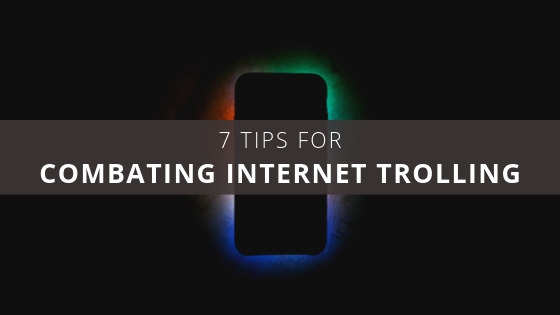Most of us, at one time or another, have encountered what is called an online or internet troll. These are provocative people whose sole motivation appears to upset people or make them uncomfortable.
How such online behavior is dealt with by a business can reinforce the trust its audience has in it or it can harm their image, depending on the reaction. Here are seven ways to positively combat internet trolling that may help businesses resolve trolling issues effectively.
Solid comment policies
Establishing a clear comment policy for users is something to be done way before the first comment of any kind is posted. A business’s comment policy should clearly define the types of comments that are allowed on both its website and social media profiles. A well-written, thoughtful policy can save much time and frustration. Once you have this policy in place, it makes it easier to moderate inappropriate comments in the future.
Don’t give them attention
The goal of online trolls is attention. They aren’t happy with a product or service, or how a customer service situation was handled, and they want someone at the business to feel as they do — angry, frustrated, and out of their comfort zone. Maybe they simply want to harass someone connected to the business because of their own bias or discrimination. Sometimes, no matter how nicely a company’s representative tries to respond, the troll will attempt to keep the issue going. While it’s not easy to do, sometimes the best option is to ignore the comments. Without giving them the attention they desire, many of them will simply go away.
Fix mistakes
Was a trolling comment the result of a mistake that was made by a given business? If so, the business should look into it. If a mistake has been made, it should be fixed immediately and the business should take ownership of it. In explaining that a mistake was made and corrected, the company will resolve the situation and instill trust in their audience.
Know the facts
If online trolls hit a business with misinformation or rumor, then the business should arm themselves with the facts in any reply. The issue should be researched carefully before any response is given. Then answer honestly with just the facts.
Listen
While none of us want to read negative comments about ourselves, our business, products, or services, it’s important to listen. It’s critical to know the difference between trolling behavior and the legitimate concerns of an unhappy customer. In knowing the difference, and demonstrating a willingness to listen, you’ll not only improve the situation for the unhappy client but you’ll instill confidence in any customers reading the conversation as well.
Everything in moderation
If you have the budget for such, you could hire a moderator or team and give them the authority to manage such activity on your blog, site, and forum. There are also some effective comment moderation tools and plugins available to help.
Don’t allow comments
On your business website, you could delete comments that are offensive and in violation of your user comment policy. You could elect not to allow any comments at all. By not allowing comments to prevent trolling, you’re also blocking users from leaving positive feedback and for certain types of businesses, such as restaurants, that could be a bigger hindrance than a help.

